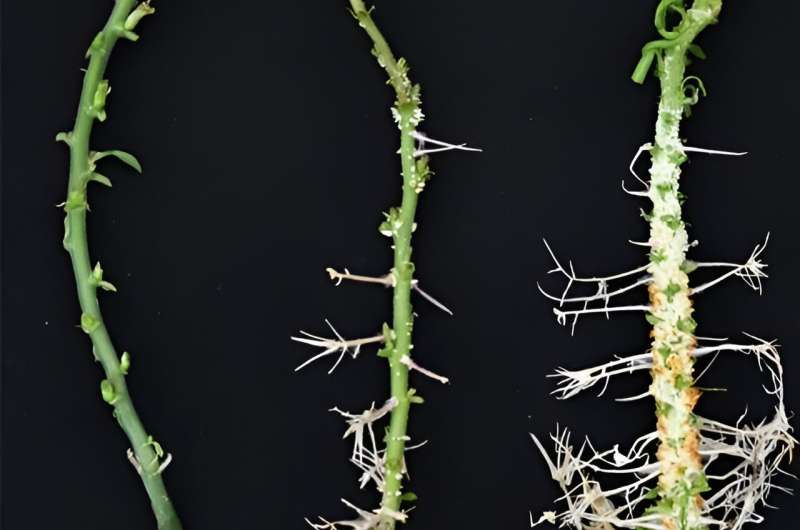Scientists identify gene that triggers dramatically increased root growth

Oak Ridge National Laboratory scientists identified a gene "hotspot" in the poplar tree that triggers dramatically increased root growth. The discovery supports the development of better bioenergy crops and other plants that can thrive in difficult conditions while storing more carbon belowground.
The team used a vast poplar dataset to identify regulator genes that can trigger hundreds of other gene expressions in the tree. They confirmed the molecular function of one hub gene, PtrXB38, and found that plants with the gene produced prolific and deeper roots. The gene even stimulated the growth of aerial roots on stems and leaves.
The work is in the journal New Phytologist.
"With more roots, these plants absorb more nutrients, grow larger, are more tolerant to drought and can draw more carbon underground for longer-term storage," said ORNL's Wellington Muchero. The aerial roots may also make the plant more tolerant to flooding. "This naturally occurring gene has implications for biomass production, food production and climate change mitigation."
More information: Tao Yao et al, Expression quantitative trait loci mapping identified PtrXB38 as a key hub gene in adventitious root development in Populus, New Phytologist (2023).
Journal information: New Phytologist
Provided by Oak Ridge National Laboratory




















